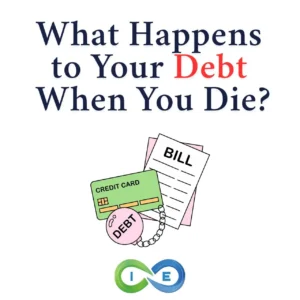We’ve all heard the expression, “Failing to Plan is Planning to Fail” and naturally this applies to your estate planning. But what is estate planning and what does it mean to have an estate plan?
What is Estate Planning?
Defining what an “estate” is will be the best place to start when focusing on what it means to plan your estate.
A common misnomer is that an “estate” by definition would refer to a vast empire of valuable assets. Actually, the term “estate” simply refers to whatever you own regardless of the value.
So, your car, home, real property, bank accounts, cash value life insurance, investments, and even personal property such as furniture guns, knives, stamps, china and coins are all a part of your estate. Essentially, your estate is made up of whatever you can’t take with you.
THE ULTIMATE FREE DOWNLOAD
The Estate Planners Tactical Guide
Essential Legal Protection for Achievers

Your estate can also be referred to as your “assets” and the concept of “asset protection” is sometimes used interchangeably with estate planning, although the former sometimes is understood to protect assets when you’re alive and the latter to protecting assets when you pass away.
Some also question whether estate planning is needed if the estate assets are subject to indebtedness such as mortgages or car loans. However, whether your estate is subject to debts doesn’t change the fact that planning is needed.
Actually, proper planning can and should include instructions for the satisfaction of indebtedness because this can result in more of the estate preserved for the heirs and beneficiaries.
As my grandpa used to say, “no one’s getting outta this alive”, so you need to have a plan for what you can’t take with you…
Having a plan does not just concern those who are elderly, retired, or only the wealthy. On the contrary, people with more modest estates generally have more to lose and cannot afford expensive estate problems resulting from a poor plan.
For younger people, often there are young children that will need to be cared for in the event of you unfortunate demise. Illness and accidents do happen to people of all ages and it is simply responsible to create a plan even if facing this fact is difficult.
Estate Planning Defined
Now that we’ve defined “estate”, what then does it mean for you to plan your estate?
A definition of Estate Planning would be to have a plan for what will happen to your estate in the event that you become disabled or pass away.
If you’ve not created an estate plan and you were to become disabled, your loved ones will need to scramble to petition the court for a legal guardianship or conservatorship (depending upon your jurisdiction) and the costs for this can extend to tens of thousands of dollars. This is also a very time consuming process, and, in the end, this critical decision is not yours but is left up to the court and a judge who doesn’t know you or anyone in your family.
Every state in the country has a plan for your estate and if you do nothing to specify your wishes, the state government’s plan will “kick in” by operation of law.
So, if you don’t have a legally enforceable estate plan, the state probate laws will dictate where your assets will go.
In many jurisdictions, the state laws will divide your assets equally between your spouse and children in some manner, and distributions to minor children will be supervised by the court system.
Does anything about the government’s plan for disability or death sound like an outcome that would be beneficial to you or your loved ones? Wouldn’t you rather decide simply by taking control and specifying your own wishes in legally enforceable documents to assure that your wishes and priorities are carried out?
Long Term Care Insurance
A proper estate plan should at least consider how long-term care services and costs will be dealt with. Nursing home care, assisted living, in home care, etc. are very expensive.
With people living longer than ever, your chances of you or your spouse needing long-term care are better than 50/50. But even with that reality staring us in the face, very few actually look into long-term care insurance.
An alternative LTC insurance product that has gained n popularity over the last few years is hybrid long term care life insurance combination policies. The benefit of combining the two insurances into one policy is you get life insurance death benefit coverage, help with your long-term care services, cash value growth that can be accessed via policy loans, with full cash surrender value plus return of premium if necessary.
Distributing Your Assets
Another aspect of creating a great estate plan is to distribute your estate assets in the most efficient and cost effective manner possible.
Generally, this means that if the estate assets would be required to go through the probate court process, they should be titled in such a way as to avoid this, and some states are worse than others when it comes to the probate court process.
There are various ways to avoid probate which include the use of a revocable living trust, joint titling of assets, or using beneficiary designations for estate assets.
It is important to get professional feedback when making these decisions because it is easy to create problems that cannot be undone without much effort and expense.
An important area of concern is planning for the distribution of digital assets or digital estate planning and this must be carefully considered as part of your planning process.
Limit your Estate Tax Exposure
If you do have a larger estate, it is also important to consider estate planning that limits your estate tax exposure and this can be accomplished through spousal and generational planning, irrevocable trust planning, and charitable planning, with the assistance of a qualified expert.
So, the definition of estate planning would be to make a legally enforceable plan in advance that clearly expresses your wishes about who will receive your estate assets and the payment of any debts, and doing so in the most efficient and cost effective manner possible.
However, there is more to creating a great estate plan, such as:
- Naming successors to manage the distribution of your assets and payment of debts such as executors, trustees, and powers of attorney for business and medical decisions.
- Naming guardians and trustees for minor children and other dependents, such as aging parents, in your household.
- Creating proper trusts for special needs beneficiaries so they do no become disqualified from receiving government assistance
- Creating proper strategies for withholding or limiting distributions for younger or less responsible beneficiaries.
- Including strategies for Medicaid planning in the event you require skilled nursing care.
- Including instructions for business succession if you’re a business owner and especially if there are other family members or partners operating the business.
- Including permanent life insurance protection to facilitate the purchase of business interests, pay estate taxes or provide for repayment of other estate debts such as mortgages or medical bills.
- Including asset protection provisions for beneficiaries.
- Including instructions for the transfer of interest in corporations, LLCs, or other investments.
Of course, the above list is not an all inclusive list and there are numerous case by case possibilities that can arise. This is why it is so important to review your estate plan regularly and update it to reflect any changes.
Living Trust vs Will
Creating legally enforceable estate planning documents starts with preparing a Last Will or a Revocable Living Trust.
A last will and testament is the legal document that tells the probate court what your wishes are…
Did you catch that?
A will is simply instructions for the court. A will does not avoid probate court.
Requirements of a Will
The last will should be well prepared and signed with the formalities of witnesses and a notary in accordance with the state’s requirements.
In some states, a notarized affidavit is not a required part of the last will but it may be advisable to make it easier to get the probate court to accept it.
Probating a Will
It is important to understand that probate can become very complicated, expensive and time consuming.
Probate is a public process and notices to creditors are provided, so essentially all parties are invited to make a claim to the estate.
Additionally, it is a ripe forum for aggrieved family members to file objections and contest the will. Will contests can greatly reduce your estate’s assets.
Proper estate planning will help lessen the chances of a will contest.
If you have real property in various states than multiple probates will likely be required and this leads to greater expense and time consuming processes for your loved ones.
The probate process can extend into many years if issues arise and remember that the court controls the outcome rather than the family members or other loved ones.
For the above reasons, a revocable living trust is a very popular alternative because it is designed to create a private process that entirely avoids the need for probate.
THE ULTIMATE FREE DOWNLOAD
The Estate Planners Tactical Guide
Essential Legal Protection for Achievers

Revocable Living Trust
Unlike a last will, a living trust, or inter vivos trust, does not pass away when you do. It is a contract between you, your trustees and your beneficiaries, and when assets are “titled” in the name of your trust, they can be distributed as part of a private process (i.e. no court intervention) between your successor trustee and your beneficiaries.
Used properly, a living trust can avoid probate and eliminate the need for multiple probates in other states.
Because it facilitates a private process, it allows for greater privacy and can also include instructions to promote your values among your loved ones.
As stated above, there are assets that will not go to probate regardless of whether you have a living trust.
For example, assets that include beneficiary designations or jointly titled assets may pass to beneficiaries without probate.
However, a revocable living trust can become a preferable way to centralize the control and distribution of even these assets because it can simplify things and can provide flexibility in the event that a beneficiary becomes disabled or predeceases you.
A living trust can also include special protections for underage beneficiaries, those with special needs on public assistance, or those facing life events such as divorce or bankruptcies.
Finally, living trusts can offer options for pre-Medicaid planning for spouses.
Funding your Revocable Living Trust
Your estate plan should include instructions for “funding your living trust” as well as guidance for completing your beneficiary designations on life insurance and other investment accounts.
Trust funding means that assets must be “titled” in the name of your living trust in order for the living trust to do its job.
For example, if your real property is not deeded to your living trust, a probate will be required to transfer your real property, defeating the purpose of your living trust planning. This same idea applies to your bank accounts, stocks, bonds, and other assets.
Similarly, assets such as life insurance policies and qualified accounts such as IRAs and 401(k) accounts must have completed beneficiary designations that either specify your living trust or an individual beneficiary.
Remember, in order to centralize the distribution of your assets and take advantage of the flexibility offered by your trust, it may be advisable to make your living trust either the primary or contingent beneficiary and this should be reviewed by your chosen experts on a case by case basis.
When to Consider an Irrevocable Trust
There are also circumstances that may warrant setting up an alternative to a revocable living trust which is an irrevocable trust.
An irrevocable trust is most appropriate for estate tax planning and asset protection which is often required for larger estates and those requiring family business succession planning.
Irrevocable trusts come in a few shapes and sizes when used for different purposes.
For example, an irrevocable life insurance trust (ILIT) is often used to hold life insurance for future generations AND charitable lead trusts or charitable remainder trusts are used for income tax and estate tax savings.
Business Owner Estate Planning
If you own a business, it is important to decide what will happen if you can no longer operate it.
It is especially critical if there are partners in the business, to determine how a deceased or disabled partners interest will be purchased if there is an intent to keep the company operating.
One scenario to avoid at all costs is that of an estate heir of a deceased business partner demanding payment or profits from the other business partner…without a clear plan this scenario can result in a forced sale of the business.
Planning for these concerns is called business continuity succession planning and it is a critical part of your estate planning.
Pre-Medicaid Estate Planning
Pre-Medicaid planning is another common concern for aging retirees and in this situation, a careful review of the assets is recommended to assure preservation of as much of the estate as possible.
When to Create an Estate Plan?
Get started on your estate plan today because the best time to start is now and peace of mind is your reward.
There are often objections that arise when considering estate planning, such as the cost or a busy schedule. However, like most important things in life, there is a huge payoff in addressing matters that are so important.
If financial cost is an issue, I suggest that you start with what you can afford and go from there. If you’re struggling with taking the time, it is often possible to get started with a phone consultation and an e-mail.
I encourage you do whatever it takes to complete this thoughtful and important process to protect yourself and your loved ones.
For all of the above reasons, the temptation to engage in do it yourself (DIY) estate planning should be weighed against the risk of unnecessary confusion and expense for you or loved ones.
If you’re not sure how to get started consider whether you’ve taken any of these important estate planning steps.





